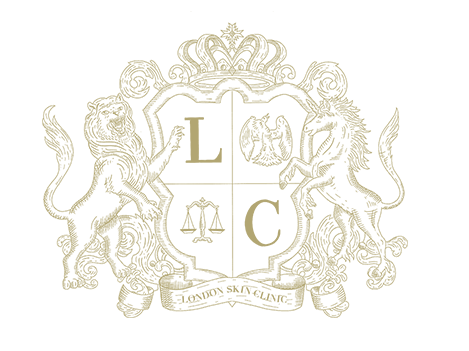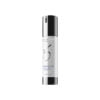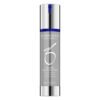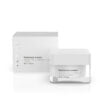Skin Concerns
Pigmentation
Uneven skin tone and texture are common skin concerns that occur for a number of reasons. Hyperpigmentation is a common cause of skin changing its tone or texture. Hyperpigmentation occurs when the skin produces an excessive amount of melanin.
Poor skin texture may also be hereditary or as a result of damage from surgery or acne scars.
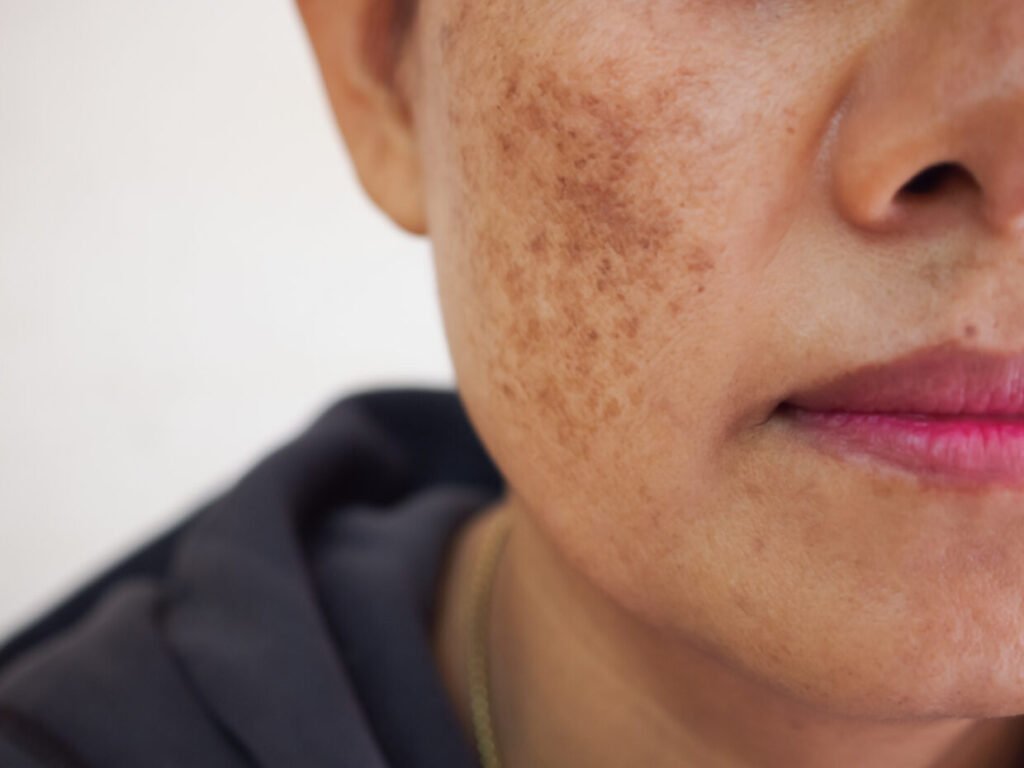
Your body contains a pigment called melanin, which determines the colour of your skin, hair and eyes. People with darker skin types tend to have more melanin in their skin cells than those with lighter skin – but imbalances and disorders of the skin can lead to inconsistent colouration, patterning and ‘blotches’.
When skin cells are healthy, your skin will appear normal and even. However, when skin cells become damaged or unhealthy, extra melanin is produced to help protect your skin. Alternatively, the cells that produce pigment can be damaged, which prevents melanin production. As a result, parts of your skin may turn lighter (hypopigmentation) or darker (hyperpigmentation), both of which are recognisable skin conditions.
Pigmentation, or hyperpigmentation as it is also known, can occur for a variety of reasons. The effects can also become more obvious as we age, and if left untreated and unprotected can worsen.
Common causes of hyperpigmentation are:
over-exposure to the sun
genetics
hormonal changes
medical conditions and trauma to the skin (such as burns or as a result of spots and picking).
Royal Buckingham Skin Brightening Treatment
This potent specialised treatment targets uneven skin tone, sun damage and skin discolouration. Using our unique stimulator solution and our exclusive brightening mask your skin will be clearer, brighter and begin to control the over production of melanin in the skin.
Intense Pulsed Light (IPL) Skin Rejuvenation
Intense Pulsed Light (IPL) skin rejuvenation therapy is a safe, effective and versatile treatment improving the appearance of many skin issues. It is non-invasive, gentle on your skin and pain-free. IPL is a light therapy that is suitable if you are suffering from: birthmarks, live acne, hyperpigmentation, broken blood vessels, brown spots, liver spots, age spots, discoloured skin, wrinkles, freckles, rosacea, scars, and spider veins.
Your body contains a pigment called melanin, which determines the colour of your skin, hair and eyes. People with darker skin types tend to have more melanin in their skin cells than those with lighter skin – but imbalances and disorders of the skin can lead to inconsistent colouration, patterning and ‘blotches’.
When skin cells are healthy, your skin will appear normal and even. However, when skin cells become damaged or unhealthy, extra melanin is produced to help protect your skin. Alternatively, the cells that produce pigment can be damaged, which prevents melanin production. As a result, parts of your skin may turn lighter (hypopigmentation) or darker (hyperpigmentation), both of which are recognisable skin conditions.
Hyperpigmentation occurs when the skin produces excess melanin, the pigment responsible for skin colour. This results in darker patches or spots that appear uneven compared to the surrounding skin. Several factors can contribute to this process:
Sun Exposure
UV radiation is the most common trigger for pigmentation.
Sunlight stimulates melanocytes (pigment-producing cells) to create more melanin as a defence mechanism, which can lead to freckles, sunspots, and uneven tone.
Hormonal Changes (Melasma)
Hormones (especially oestrogen and progesterone) can stimulate melanin production.
Common during pregnancy, with oral contraceptives, or hormone therapy.
Often appears as symmetrical patches on cheeks, forehead, or upper lip.
Post-Inflammatory Hyperpigmentation (PIH)
Occurs after skin trauma such as acne, burns, eczema, or even cosmetic treatments.
The skin produces excess melanin in response to inflammation.
Genetics and Skin Type
Darker skin tones (Fitzpatrick III–VI) are more prone to visible hyperpigmentation due to more active melanocytes.
Ageing (Lentigines or Age Spots)
With time, cumulative sun exposure leads to flat, brown age spots.
Medications or Photosensitisers
Some medications (e.g. antibiotics, chemotherapy, or anti-seizure drugs) make the skin more sensitive to sun and may trigger pigmentation.
Heat and Light Exposure
Not just UV — infrared and visible light (like from cooking, saunas, or screens) can also stimulate pigment in sensitive individuals.
Brightening Hydro Facial
This potent specialised treatment targets uneven skin tone, sun damage and skin discolouration. Using our unique stimulator solution and our exclusive brightening mask your skin will be clearer, brighter and begin to control the over production of melanin in the skin.
Intense Pulsed Light (IPL) Skin Rejuvenation
Intense Pulsed Light (IPL) skin rejuvenation therapy is a safe, effective and versatile treatment improving the appearance of many skin issues. It is non-invasive, gentle on your skin and pain-free. IPL is a light therapy that is suitable if you are suffering from: birthmarks, live acne, hyperpigmentation, broken blood vessels, brown spots, liver spots, age spots, discoloured skin, wrinkles, freckles, rosacea, scars, and spider veins.
